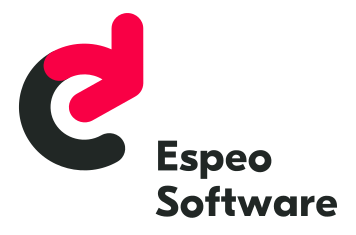We actually understand the fears and objections regarding outsourcing your software. No, really, we do. We’ve been in business long enough to take these issues seriously. You’re putting your product into the hands of people you won’t get to see every day. You have to answer to your investor, your co-founder, and there’s still that nagging fear that ‘cheaper’ might mean ‘terrible in the long run’. OK. So, hiring developers or outsourcing? Just hear us out first, and then you’ll decide for yourself.
The hire you’re looking for is more expensive.
Simple as that. Let’s even say you’re thinking of either hiring developers from the States or giving the job to an American freelancer. Compared to an outsourcing team from our part of the world, those US freelancers are still more expensive. And that brings us to another point.
Hiring developers = fixed cost.
Even if you’re funded, those can be a challenge if your revenues are fluctuating. That will frequently be the case if you’re a smaller business. Costs add up with the necessity to keep payroll, maintain office space. Overheads can go beyond their basic salary.
A hire needs something to do.
What if there’s currently nothing to be done? Still have to pay him/her. What you pay outsourced employees is based on output. That’s why we prefer time&material contracts. You can always add employees later if you’re comfortable. But if you’re focused on growth, it might make more sense to cut costs a bit at this point.
A hire is not necessarily a better programmer.
The old saying that if something’s cheaper, it’s probably worse makes little sense at this point. Polish developers are winning awards and producing quality code. The economic environment is different here, but in terms of progress… come and see for yourself.
A hire is not necessarily even a better team member.
Sure, you have doubts if the language barrier is going to be an issue. The truth is everyone working in IT can speak English in this part of the world. The younger generation here benefits from a decent linguistic education. Not everyone may catch a fancy metaphor (though memes are fine and well, judging by the content on our Slack channels post-work) but language barrier? No.
And another ‘team member’ issue…
A good outsourced employee doesn’t hammer away silently, in seclusion.
For example, we work in partnership with existing teams or the rest of company. We place considerable emphasis on good practices and actually being available. That type of communication can give you the feel of a hire without the need to pay for what you don’t want.
If you hire, you remove the flexibility you could’ve had with offshore workers.
We can almost see that raised eyebrow. Yes – you can actually have round-the-clock development. You agree on mutually acceptable times for meetings. When your team finishes, the other can take over. It’s pretty clear this gives you a competitive advantage.
Both an outsourced and hired employee can be under the same regulations.
We get it, the last point was more valuable for those involved in US projects. But if your country is an EU member (Brexit will take a while, not to worry), there’s another thing on your side. The law, the regulations, the standards – all EU. Here’s an article we recommend.
We’re not saying outsourced employees are always a better idea. Some core solutions are good to keep in-house. You might find that awesome dev that ticks all your boxes. Or you might just need someone to be there in the room with you. But do give this some thought. It’s your call.



![Before You Start Outsourcing Software Development [Checklist]](https://espeo.eu/wp-content/uploads/2017/01/rlw-uc03gwc-glenn-carstens-peters-e1484576247712-300x200.jpg)
